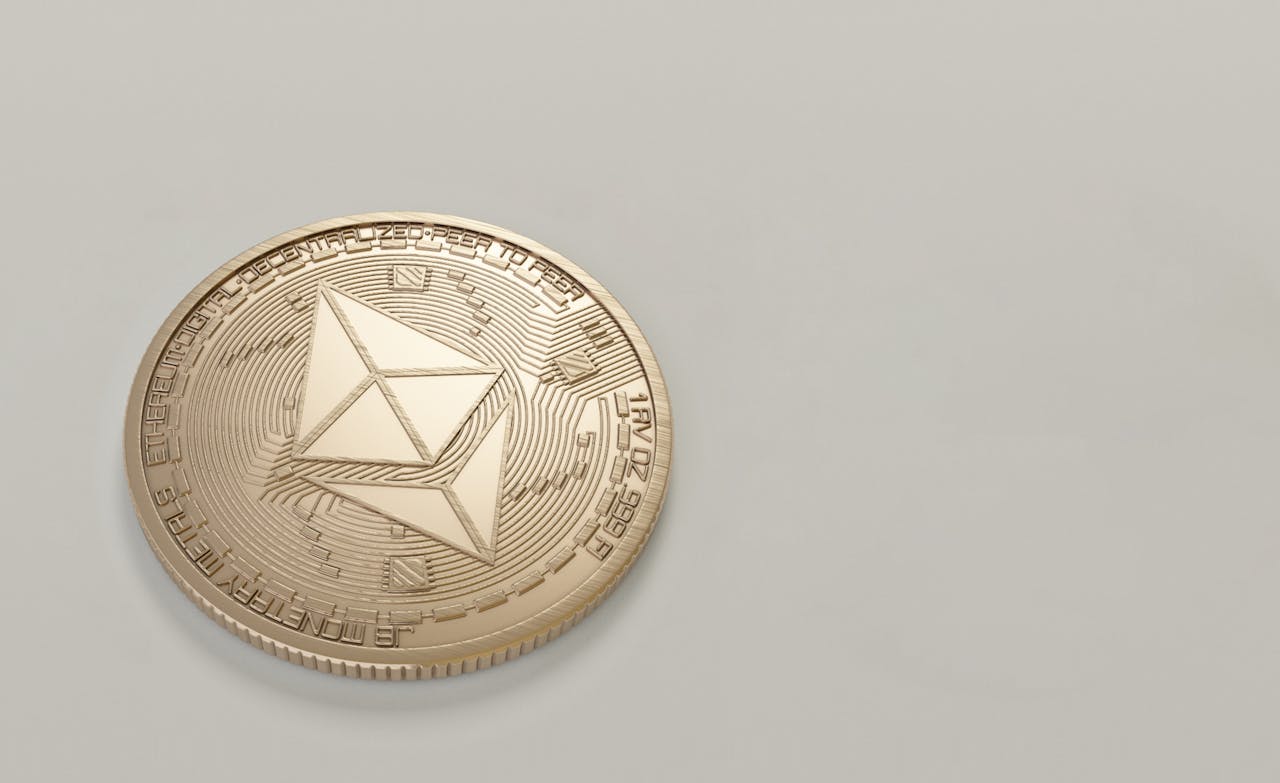By the end of 2024, the U.S. Securities and Exchange Commission (SEC) had approved several Ethereum ETFs, stirring up buzz across investment circles. But here’s what most people don’t realize: the first ETH ETFs weren’t actually buying Ether—they were buying a bunch of contracts tied to its price.
This product is what we call an Ethereum Futures ETF.
You’ve probably seen tickers like EETH (ProShares Ether Strategy ETF) or EFUT (VanEck Ethereum Strategy ETF) on your broker app. They look like “Ethereum funds,” but in reality, they work very differently.
1. It’s Not Buying ETH—It’s Buying ETH Futures Contracts
So what exactly is a futures contract? Simply put, it’s a bet on future price movements.
An Ethereum Futures ETF doesn’t purchase real ETH. Instead, it takes your investment and uses it to buy Ethereum futures contracts listed on the Chicago Mercantile Exchange (CME). These contracts have specific expiry dates (like the first Friday of the next month). When one contract expires, the ETF must “roll it over” by buying the next month’s contract.
So how does the ETF operate?
It speculates on ETH’s future price—but never actually owns ETH.
If you thought buying this ETF meant you owned a piece of Ethereum, sorry to say—you don’t.
2. The Difference Between Spot and Futures ETFs Changes Everything
By early 2025, the SEC had also approved several spot Ethereum ETFs. These products actually buy and hold ETH, storing it in institutional-grade cold wallets and issuing shares to investors.
Let’s compare the two side by side:
| Feature | Ethereum Futures ETF | Ethereum Spot ETF |
|---|---|---|
| Asset Held | ETH futures contracts (CME) | Actual ETH (cold storage) |
| Price Correlation | May deviate from real ETH | Closely tracks ETH spot |
| Cost Structure | Higher (includes roll cost) | Lower, more efficient |
| Investment Purpose | Short-term speculation or arbitrage | Long-term store of value |
| Risk Profile | Suited for volatility & strategies | Suited for steady investors |
To summarize: One plays with “contracts,” the other holds the real thing.
3. Who’s Offering These ETFs, and Are People Still Buying in 2025?
Here are a few major Ethereum Futures ETFs still operating in mid-2025:
| ETF Name | Issuer | Launch Date | AUM (as of June 2025) |
|---|---|---|---|
| ProShares Ether Strategy ETF (EETH) | ProShares | Oct 2023 | $860 million |
| VanEck Ethereum Strategy ETF (EFUT) | VanEck | Oct 2023 | $420 million |
| Bitwise Ethereum Strategy ETF | Bitwise | Dec 2023 | $275 million |
These funds filled the gap before spot ETFs were allowed. But since 2024, capital has clearly flowed toward spot ETFs, and futures products have lost their spotlight.
That said, they still hold strategic value—especially in institutional portfolios and quant trading environments.
4. Why These ETFs Often Underperform Ethereum Itself
Here’s something many retail investors overlook.
The biggest structural risk of ETH futures ETFs is the negative roll yield.
Here’s how it works:
- ETH futures markets are often in contango (future prices > spot prices)
- The ETF constantly sells cheaper expiring contracts and buys pricier new ones
- Over time, this repeated “buy high, sell low” leads to performance drag
For example:
Even if ETH gains 40% in a year, a futures ETF might only rise 28% due to compounding losses from contract rollovers.
5. Who Should Buy an Ethereum Futures ETF?
It’s not the perfect product for everyone—but it serves a purpose.
✅ Retirement account users (like IRAs, 401(k)s) who couldn’t buy spot ETH ETFs
✅ Investors who don’t want to manage cold wallets or learn blockchain tech
✅ Arbitrage or hedge funds building cross-product strategies
✅ Short-term traders seeking exposure to ETH price swings
But if you’re a long-term ETH holder or someone looking to truly own ETH, a futures ETF probably isn’t for you.
6. Does It Still Have a Future?
By 2025, Ethereum Futures ETFs are no longer star products.
However, they still have relevance in these scenarios:
- Institutional funds, pensions, or insurers restricted from holding spot crypto
- Some international markets (e.g., Canada, Australia) that haven’t approved spot ETH ETFs
- High-frequency strategies or spread arbitrage still rely on futures liquidity
In short, they’re more of a “financial engineer’s tool,” not a passive buy-and-hold product for the average investor.
Conclusion: Know What You’re Really Buying
Ethereum Futures ETFs might look like crypto exposure, but they’re actually derivatives.
You think you’re buying ETH—what you’re actually buying is a contract betting on ETH’s future price.
That doesn’t mean it’s useless. But if you don’t understand the structure, you might end up using the wrong tool for the wrong job—and hurting your own returns.
FAQ
1. What exactly does an Ethereum Futures ETF invest in?
An Ethereum Futures ETF does not invest in actual ETH. Instead, it holds Ethereum futures contracts traded on the CME (Chicago Mercantile Exchange). These are paper contracts that bet on the future price of ETH.
2. How is it different from a spot Ethereum ETF?
A spot Ethereum ETF actually buys and holds ETH in cold storage, closely tracking the real market price. A futures ETF only holds derivatives and may underperform due to rollover costs and price mismatches.
3. Why might an ETH futures ETF underperform ETH?
Because futures ETFs constantly “roll” from expiring contracts to new ones—often buying at a higher price and selling at a lower one. This creates negative roll yield, which erodes long-term returns, especially in bull markets.
4. Can I invest in an Ethereum Futures ETF using my retirement account?
Yes. One major advantage of ETH futures ETFs is that they are SEC-regulated and can be held in retirement accounts like IRAs or 401(k)s—something that wasn’t possible for spot crypto until recently.
5. Who should consider buying an Ethereum Futures ETF?
These ETFs are suitable for:
- Investors who want crypto exposure in regulated environments
- Retirement account holders unable to buy spot ETH
- Institutions running hedge or arbitrage strategies
- Short-term traders aiming to profit from ETH price movements



